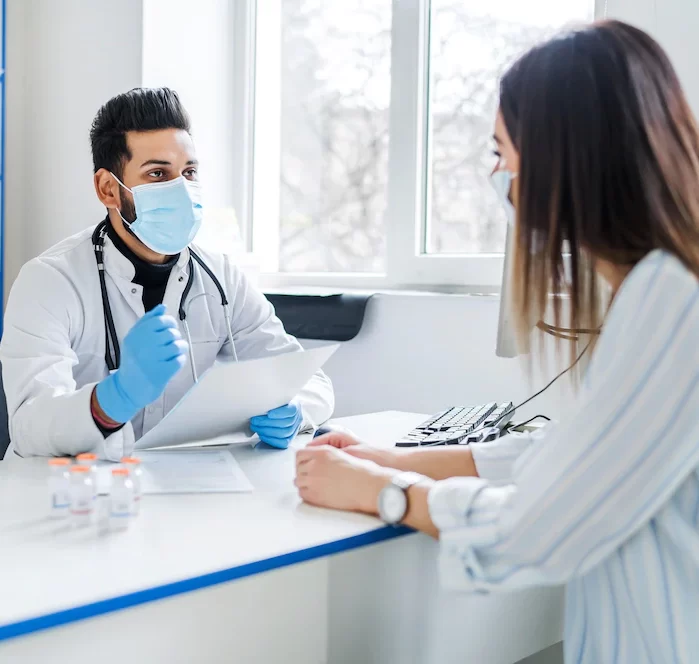What is Hypogonadism?
Hypogonadism is a condition that affects both men and women. It occurs when the sex glands, known as the gonads, produce insufficient sex hormones, primarily testosterone in men and oestrogen in women. This hormonal imbalance leads to a wide range of physical and emotional symptoms, affecting the overall quality of life.
Symptoms of Hypogonadism
The symptoms of hypogonadism can vary widely between individuals and depend on factors such as age, gender, and the underlying cause. Common symptoms include:
- Reduced libido and sexual dysfunction
- Fatigue and decreased energy levels
- Muscle loss and reduced muscle strength
- Mood swings and irritability
- Depression and cognitive issues
- Decreased bone density
- Gynecomastia (enlarged breast tissue)
Causes of Hypogonadism
Hypogonadism, a condition characterised by underactive gonads and reduced sex hormone production, can result from various causes. These causes can be categorised into primary and secondary factors:
- Primary Hypogonadism: This type of hypogonadism occurs when the gonads themselves (testes in men and ovaries in women) are unable to produce an adequate amount of sex hormones. Common causes of primary hypogonadism include:
- Genetic Conditions: Some genetic disorders, such as Klinefelter syndrome in males, can lead to underdeveloped or nonfunctional gonads.
- Trauma or Injury: Physical trauma, such as testicular injury, can damage the gonads and impair their hormone-producing capabilities.
- Infections: Certain infections, such as mumps, can inflame and damage the testes, causing hormone production problems.
- Radiation or Chemotherapy: Cancer treatments, including radiation therapy and chemotherapy, can adversely affect the gonads and their hormone production.
- Autoimmune Disorders: Autoimmune diseases may cause the immune system to mistakenly target and damage gonadal tissue, disrupting hormone production.
- Secondary Hypogonadism: Secondary hypogonadism is characterised by issues in the hypothalamus or pituitary gland, which regulate the production of sex hormones. Common causes include:
- Tumours: Benign or malignant tumours in the brain, particularly in the hypothalamus or pituitary gland, can interfere with the regulation of sex hormone production.
- Infections: Infections affecting the hypothalamus or pituitary gland can disrupt their function and subsequently impair hormone production.
- Medications: Some medications, such as certain opioids, glucocorticoids, or hormonal therapies, can negatively impact hormone regulation.
- Nutritional Deficiencies: Severe malnutrition or eating disorders can affect the hypothalamus and pituitary gland, leading to hormonal imbalances.
- Stress and Emotional Factors: Chronic stress, depression, or emotional disorders can sometimes disrupt the hormonal balance through their impact on the brain’s regulatory centres.
Ageing: Age-related hypogonadism, often referred to as “andropause” in men, is a natural decline in sex hormone production associated with ageing.
Diagnosing Hypogonadism
Diagnosing hypogonadism typically involves a thorough physical examination and blood tests to measure hormone levels. You may also be recommend additional tests, such as bone density scans and imaging studies, to identify any underlying causes.
Treatment Options for Hypogonadism
Once diagnosed, the treatment of hypogonadism is tailored to address the underlying cause and alleviate its associated symptoms. Common treatment options for hypogonadism include:
- Hormone Replacement Therapy (HRT): This involves replacing deficient hormones with synthetic hormones. In men, testosterone replacement therapy can help alleviate symptoms.
- Lifestyle Modifications: Adopting a healthy lifestyle has a positive impact on hypogonadism. Healthy lifestyle practices like maintaining a balanced diet, regular exercise, and stress management may help.
- Surgical Intervention: In cases of structural issues, surgical procedures may be necessary to correct the problem. For instance, varicocele repair or testicular prosthesis placement in men.
- Fertility Treatments: For individuals seeking to conceive, assisted reproductive techniques like in vitro fertilisation (IVF) or intrauterine insemination (IUI) may be recommended.
Hypogonadism Treatment in Chennai
If you are seeking specialised care for hypogonadism in Chennai, rest assured that BM Cosmetic offers a wide range of experienced medical professionals to address your needs. Discuss your symptoms and concerns with our experts to determine the most suitable treatment plan for you.
Hypogonadism can significantly impact an individual’s well-being. It’s essential to recognise the symptoms, seek proper diagnosis, and explore treatment options, as they can help alleviate the effects of this condition and improve your quality of life. If you suspect you may be suffering from hypogonadism, call 9952099620 and book an appointment for guidance on the most appropriate steps to take.

